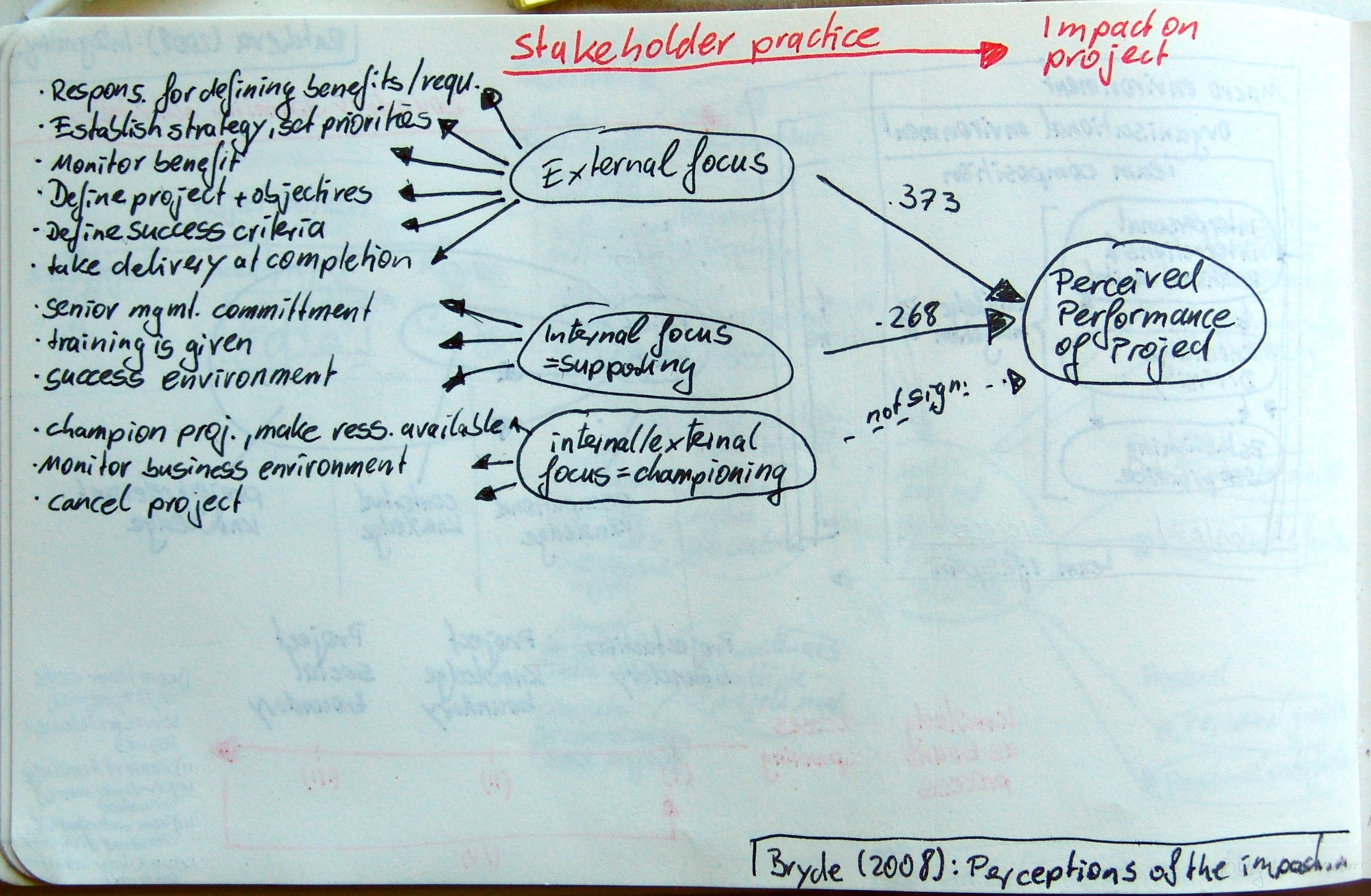Bryde, David: Perceptions of the impact of project sponsorship practices on project success; in: International Journal of Project Management, in press.
Bryde investigates in this article the question which impact on the project stakeholder practice has.
The impact on the project is simply measured as perceived performance score of the project. The different practices are operationalised in three factors (with items sorted according to their factor loading)
- External focus
- Responsible for defining benefits and requirements
- Take delivery at completion
- Establish strategy, set priorities
- Define success criteria
- Define project and objectives
- Monitor benefits
- Internal focus = supporting
- Create an environment for projects to succeed
- Make senior management commitment
- Give training when necessary
- Internal/external focus = championing
- Cancel project if appropriate
- Champion project, make resources available
- Monitor business environment
Finally Bryde uses a stepwise regression to quantify the impact of each factor on the perceived project success score. Resulting in a two factor model where ‚External focus‘ (standardised β = 0.373) and ‚Internal focus‘ (standardised β = 0.268) impact the project success. Adjusted R2 is 0.326.
Unfortunately in this article the performance is just scored up although a multi-item measurement exists, factor analysis has not been employed. Furthermore the article does not detail the consistency of scale neither for the antecendents nor consequence (Cronbach’s Alpha) and does not test for heteroscedasticy or distribution. Thus this article falls short in advancing the development of a multi-item measurement of project success from a stakeholder point of view.

classes of medical devices…
There are two schools of thought in the industry concerning the origin of quality manuals. One categorically declares that a single, common quality manual will not work and that each company should develop its own. This conviction stems from the belief…